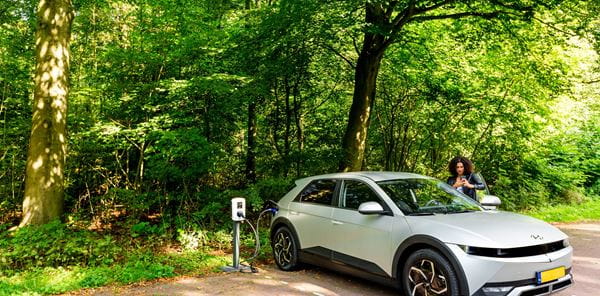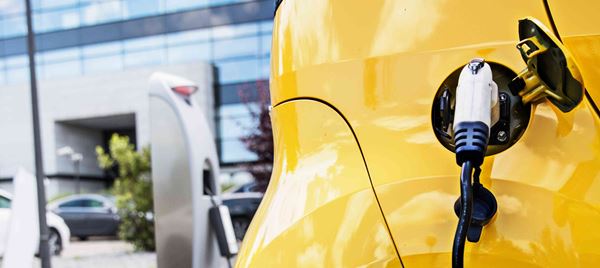
A beginner’s guide to electric driving
We all want to do our part to help save the planet, but most of us don’t know where to start. After all, what difference can one person really make, in the face of the current climate crisis? Well, actually, a LOT! Every action each one of us takes has a cumulative effect—so, instead of getting overwhelmed by all the things we can’t do, let’s focus on one thing we can—choosing which car to drive.
How EVs make a world of difference
Choosing an electric vehicle over a conventional petrol/diesel car makes a world of difference in your carbon footprint, not to mention your health and budget. Here are a few more reasons why becoming a plug-in driver is a smart first step towards saving the planet.
Good for the planet
Electricity is a form of renewable energy, so you won’t be expending limited resources, like fossil fuels, to power your electric vehicle. And even when you take the electricity generation into account, EVs are still greener than petrol or diesel cars. Plug-in hybrids produce significantly less greenhouse gas exhaust emissions as well, and pure EVs don’t produce any emissions at all. So, switching to an electric vehicle definitely helps you reduce your carbon footprint, which is good for the planet. You can also recycle the engine (or battery) of an electric car, which reduces the need for production – which in turn lowers the overall damage done to the environment. Also, more eco-friendly production methods and materials make some EVs even more attractive.
For example, the Nissan Leaf manufacturers upcycled water bottles, plastic bags, old car parts, and even second-hand home appliances into its interior and exterior, making it even more environmentally friendly.
Good for your body
But an EV doesn’t just have an impact on global factors. Electric mobility is also the 'healthy choice' for your body and budget. Reduced harmful exhaust emissions mean improved air quality, good not only for you but also for everyone else who breathes. Plus, EVs are structurally safer than conventional cars, and also less likely to catch fire, explode, or roll over.
Good for your budget
On average, it costs half as much to travel the same distance in an EV than a conventional vehicle. Electricity is less expensive than petrol, and EVs are more efficient than conventional vehicles. Plus, the cost of electricity is generally much more stable than fuel prices. Some of the latest EVs can drive over 400 kilometers on a single charge.
And while EVs can be more expensive to purchase than conventional petrol/diesel cars, you can lease one for an affordable, fixed monthly fee.
Top FAQ electric driving
What is a full electrical vehicle? An electric vehicle, also called an EV, uses one or more electric motors or traction motors for propulsion. The energy used for driving an EV is stored in the battery and the battery is charged at a charge station (at home, at the office or in public).What do I need to charge my electric vehicle? To charge your electric vehicle, you will require a recharging station, a charging cable, and a charging card.How many kilometres can I drive on a fully charged battery? A fully charged battery with a capacity of 40 kW will enable you to drive 200 to 250 kilometers. If you drive sensibly, you will achieve even more. Speed has the most effect on the amount of power drawn down from your battery, so you are advised to keep to the permitted speed limits. There are also other factors that may have an effect on your driving range: - High or low temperatures (resulting in continuous operation of the air conditioning/heating) - A (too) sporty driving style - Driving with a strong headwind - A fully loaded car - Driving uphill for a long period of time Does an electric vehicle require different maintenance than a vehicle with petrol or diesel? An electric vehicle requires less maintenance. This is due to the engine's reduced number of moving parts compared to a conventional combustion motor, which therefore leads to reduced wear. Moreover, oil changes are a thing of the past and the vehicle does not have an exhaust or gears. In addition, the brakes are less susceptible to wear thanks to the regenerative braking capacity.How safe are electric vehicles? Electric vehicles are approved for all safety factors, just like conventional vehicles. In the event of a collision, there is a possibility that some parts may receive an active charge or that short-circuiting causes an electrical fire, though the safety precautions and construction have limited this risk to an absolute minimum.How long will it take to charge my vehicle? That depends on a number of factors: the type of vehicle, the power left in the battery, how fast your vehicle charges, and which type of recharging station you will be using. When charging your vehicle with a standard power socket, approximately 10 hours is required. This is approximately 2 to 4 hours when using a public recharging terminal. When using a fast-charger (primarily located along highways), your battery will reach 80% charge in 30 minutes. Do keep in mind that using fast-chargers is more expensive than standard recharging stations.What does it cost to charge an electric vehicle? This depends on where you will be charging your vehicle. Home recharging stations are the most economical in most situations. The average electric vehicle uses 15 to 20 kWh per 100 km. If your home electricity rate is €0.25 and you drive an average of 15,000 km per year, your charging costs will range between €563 and €750 per year. When charging away from home, your rate is determined by the recharging terminal provider. A starting fee and incentive rate are often charged in addition to the kWh charge. Via www.plugsurfing.com, you'll find an overview of available recharging terminals in Belgium and Europe including the price per kWh.Would you like to drive an electric car?
Please provide your contact details so we know how to reach you. We’re happy to discuss your lease options, with no obligation.








